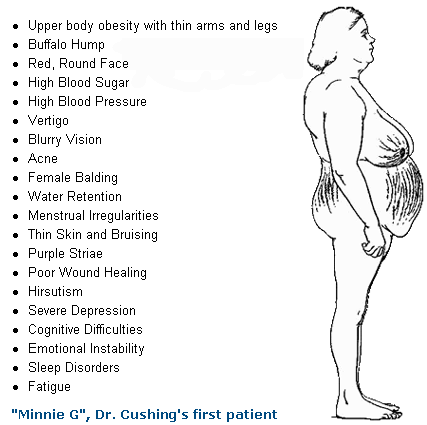
Hi, Readers.
I had been bracing myself for a week before D - DAY- * Drop in Prednisone Day. I was scared.

(Piggy & Dirty on etsy can make this Scary Skull for ya. No, thanks for me, Kurt.)
It came.
I have a disease that required I be on it and then I was on it so long or something clicked and I got Cushing's Syndrome. : ( So now I am fighting to get off the prednisone as fast and safely as possible. It is not fun. There have been some set backs. The body hasn't got a way to handle the stress since it is synthetically made. So some things like a car accident, for instance, can cause a lot of problems. And set back the tapering process, which can make you deal with Cushings sydrome for a longer time.
 Which is scary. Look how cute Becky over at Piggy & Dirt, their etsy. com store, can make scary wrapping of a gift! They are just too cool.
Which is scary. Look how cute Becky over at Piggy & Dirt, their etsy. com store, can make scary wrapping of a gift! They are just too cool. It isn't as ugly as it's going to be in a few days so I will brace myself for that for good measure.
******************************
The day my body figured out the drop was for real, happened. And it is ugly. Glad I measured.
*******************************
I re-read some info. on Cushings after getting pumped up about football games, people's athletic goals, so on an such.
Anyway, the support group over at the Cushing web site helped me. Kate puts it best, so here is her much needed letter tonight!

(In Memory of Kate Myers- photo courtesy of cushingsbios.com)

(In Memory of Kate Myers- photo courtesy of cushingsbios.com)
Dear friends and family:
I am writing this letter to share with you some basic facts about Cushing’s Disease/Syndrome and the recovery process so that you will have sufficient information to form realistic expectations about me and my ability to engage in certain activities in light of this disease and its aftermath.
As you know, Cushing’s is a rarely diagnosed endocrine disorder characterized by hypercortisolism.
Cortisol is a hormone produced by the adrenal glands and is vital to regulate the body’s cardivoascular functions and metabolism, to boost the immune system and to fight inflammation.
But its most important job is to help the body to respond to stress.
People with Cushing’s Syndrome live life with too much cortisol for their bodies as a result of a hormone-secreting tumor. Mine is located in the pituitary gland. Endogenous hypercortisolism leaves the body in a constant state of “fight or flight,” which ravages the body and tears down the body’s major systems including cardivascular, musculo-skeletal, endocrine, etc.
Symptoms vary, but the most common symptoms include rapid, unexplained weight gain in the upper body with increased fat around the neck and face (“moon facies”);

(I am in the middle and was on my way to not fitting those shorts. Which, at the time, were my "big" shorts and I thought I was "big" at the size 7 or 8 because I was used to being thin due to Crohns. J. and I are crossing the street in Cody, Wyoming. I could barely walk due to some Crohns problemos. But you can't tell.....)
buffalo hump; facial flushing/plethora; muscle wasting in the arms and legs; purplish striae (stretch marks) on the abdomen, thighs, buttocks, arms and breasts; poor wound healing and bruising; severe fatigue; depression, anxiety disorders and emotional lability; cognitive difficulties; sleep disorders due to abnormally high nighttime cortisol production; high blood pressure and high blood sugar/diabetes; edema; vision problems; premature osteoperosis; and, in women, signs of hyperandrogenism such as menstrual irregularities, infertility, hirsutism, male-patterned balding and steroid-induced acne.
One of the worst parts about this disease is the crushing fatigue and muscle wasting/weakness, which accompanies hypercortisolism.
Not only do we become socially isolated because of the virilzing effects of an endocrine tumor, which drastically alters our appearance, but we no longer feel like ourselves with regard to energy. We would love to take a long bike ride, run three miles or go shopping like we used to — activities, which we took for granted before the disease struck. Those activities are sadly impossible at times for those with advanced stages of the disease.
Sometimes, as with any serious illness, performing even basic tasks of daily care such as showering and dressing can exhaust the limited reserves of energy available to a Cushing’s patient.
How do we explain to you what it’s like to watch our lives slip away? What response is sufficient to express the grief and frustration over losing so much of ourselves? It is often difficult to find the strength to explain how your well-meaning words of prompting and encouragement (to diet or exercise) only serve to leave us more isolated and feeling alone.
Though we wouldn’t want it, we wish our disease were as well-understood as cancer so that those who love us would have a frame of reference for what we go through. With Cushing’s, there is such limited public awareness that we are left to describe the effects of the disease from a void, often with limited understanding from those who love us most, which is disheartening.
The most frustrating misconception about this disease is that we somehow are “doing this to ourselves,” or delaying recovery because we need to continue steroid replacement or lack the energy to exercise often, which is sadly false. Trust me that we would love to have that much control over such a terrible disease.
Fortunately, there is a good likelihood of remission from Cushing’s in the hands of a skilled pituitary surgeon. Unfortunately, the long-term remission rate is only 56%, meaning that 44% of people with Cushing’s will require a second (sometimes third) pituitary surgery, radiation or bilateraly adrenalectomy to resolve the hypercortisolism. Without successful treatment, Cushing’s leads to death. Even with successful treatment, I will have to be monitored for possible recurrence for the rest of my life.
After surgery or other treatment, the recovery period can last months or even years. Because the tumor takes over control of the body’s production of cortisol, the adrenal glands, which had lain dormant prior to surgery, require time to start functioning properly again.
Until this happens, we must take synthetic steroids or else risk adrenal insufficiency or adrenal crisis, which can be quickly life-threatening. Careful monitoring of our cortisol levels is critical during the weaning period. It is a rare but sad fact that some people’s adrenal glands never return to normal, and those people must continue to take hydrocortisone or prednisone — sometimes for life — simply in order for the body to perform correctly its basic systemic functions.
The physical recovery from surgery can be quick, but the withdrawal from hydrocortisone can be a lengthy and extremely painful process. As I described above, Cushing’s causes a tearing-down of muscles and bone. While there is an over-abundance of cortisol in our bodies (as a result of the tumor), we often can’t feel the effects of the muscle-wasting and bone deterioration because of the anti-inflammatory action of cortisol. Upon weaning, however, these become painfully (literally!) evident.
The physical pain experienced while weaning from cortisol has been described as worse than weaning from heroin. When cortisol levels are low, one experiences the symptoms akin to a really bad flu, including severe fatigue (”like a wet cement blanket laid on top of me”); weakness and exhaustion; nausea; headache; vomiting; mental confusion. It is imperative for people who are on replacement steroids after Cushing’s surgery to carry extra Cortef (or injectable Solu-Cortef) with them at all times in addition to wearing a medic alert bracelet so that medical professionals will be alerted to the possibility of adrenal insufficiency in the event of an adrenal crisis.
People who have struggled with Cushing’s Syndrome all hope to return to “normal” at some point. Though none of us want to have Cushing’s, it is often a relief finally to have a correct diagnosis and treatment plan. For many, there is a gradual resolution of many Cushing’s symptoms within a few years of surgery or other successful treatment, and a good quality of life can be achieved.
But regrettably, this is not possible in every case. Depending on the severity of the disease and the length of time before diagnosis and treatment, the prognosis can be poor and lead to shortened life expectancy and diminished quality of life. This is not a choice or something we can control, but it is the reality for some people who have suffered the consequences of long-term hypercortisolism.
The best support you can give someone who is suffering from Cushing’s or its aftermath is to BELIEVE them and to understand that they are not manufacturing their illness or prolonging recovery. Ask them what they are able (and not able) to do, and then be prepared to help them in ways that matter — whether that be to bring them a meal or help them to run errands, pick up prescriptions from the pharmacy or clean their house.
Because it’s these little everyday tasks, which can fall by the wayside when someone has (or has had) Cushing’s, and these are the things we miss the most: doing for ourselves.
Ask us questions about the disease, and then actively listen to what we say. We know you don’t know much about Cushing’s — even our doctors sometimes lack information about this rare disease. But know we appreciate the interest and will tell you everything you want to know, because those of us who have it necessarily become experts in it just in order to survive.
Thank you for caring about me and for hearing what I am saying in this letter. I know you love me and are concerned about me, and I appreciate that so much. Thank you also for taking the time to read this letter. I look forward to discussing further any questions you might have.
In the meantime, I am attaching a brief article written by a woman who recently was diagnosed with Cushing’s. I hope hearing another person’s experiences will help you to understand what I’m going through so that when we talk, we will be coming from a similar starting place.
Endocrinologists (doctors who specialize in Cushing's Syndrome and its related issues) realize the medical aspect and know the damaging effects that Cushing's has on the body. Family and friends see their Cushie suffering and know they are hurting physically and often times mentally and emotionally. However, understanding the debilitation of Cushing's and how it can affect every aspect of a person's life can only be truly realized by those who have experienced the syndrome.
Cushings Help Organization, Inc., a non-profit family of websites maintained by MaryO, a pituitary Cushing's survivor, provides this letter for patients to provide to their family and friends in hopes of providing a better understanding Cushing's and it's many aspects.
We're sorry to hear that your family member or friend has Cushing's Syndrome or suspected Cushing's. A person may feel better at times then at other times. It's common for a Cushing's patient to have burst of energy and then all of a sudden they become lethargic and don't feel like moving a muscle. There are many symptoms that are associated with Cushing's. They include weight gain, fatigue, muscle weakness, shortness of breath, feeling achy all over, headaches, blurred vision, mood swings, high blood pressure, stretch marks (straie), buffalo hump, diabetes, edema and the list goes on. Hormones affect every area of the body.
It is important to note that not all patients have every symptom. Even some hallmark symptoms, such as straie or the "buffalo hump", may not be noticable on every patient. Not everyone who has Cushing's will experience the same symptoms, treatment, or recovery. Because not all "Cushies" have these symptoms, it makes diagnosis even more difficult.
Cushing's can cause the physical appearance change due to weight gain, hair loss, rosacea, acne, etc. This can be very disturbing when looking in the mirror. Changes in appearance can often cause the Cushing's patient to withdraw from family and friends making it a very lonely illness. Patients often feel alone or withdrawn because few others understand.
Cushing's can affect affect anyone of any age although it is more commen in women.
Cushing's patients need to be able to take one day at time and learn to listen to their bodies. There will most likely be times when naps are needed during the day and often times may not be able to sleep at night due to surges of cortisol. Your Cushie doesn't expect you to understand Cushing's Syndrome completely. They do need you to be there for them and try to understand to the best of your ability what they feel and not give up on them.
Often a Cushing's patient may be moody and say things that they don't mean. If this should happen with your Cushie try not to take it personally and know that it's most likely caused by the elevated cortisol and disturbances in other hormone levels caused by the Cushing's and not from the heart or true feelings of your Cushie.
It can be very depressing and frustrating having so many limitations and experience things in life being taken from you. Cushing's patients are sick, not lazy, not hypochondriacs or even the newer term "Cyberchondriacs". If a Cushing's patient says they don't feel like doing something or they express how bad they feel let them know that you believe them. One of the most frustrating things to someone who is sick is to have those you love not believe you or support you. Telling a Cushie to think positive thoughts will not make him/her well and will just be aggravating.
Testing procedures can be lengthy and this can become frustrating for the patient and family. Often, it takes a while for results to come back and this can be stressful. Don't look too far ahead just take one day at a time and deal with the situation that is at hand at the present time.
After a diagnosis is made then it's time for treatment. Surgery is usually the best treatment option for Cushing's that is caused by tumors. Don't be surprised if the surgeon's facility wants to run even more tests or redo some of those that have already been done. Your Cushie may have to travel a ways to find a surgeon who is trained in these delicate surgeries and who has performed many of them.
Once the diagnosis has been made and treatment has finished then it's time for the recovery process. Not all patients who have surgery are cured and they have to make a choice along with the advice of their doctor as to what their next treatment option will be.
The recovery from the surgery itself is similar to any other surgery and will take a while to recover. The recovery process obtained from getting a cure from Cushing's is quiet different from other surgeries. A Cushing's patients body has been exposed to excess cortisol, usually for quite a long time, and has become accustomed it. When the tumor is removed that has been responsible for the excessive cortisol and the body is no longer getting it this causes the body to have withdrawal symptoms. Withdrawal can be very hard causing an array of symptoms muscle aches, weakness, bone and joint pain, emotional disturbances etc.
Thank you for reading this and we hope it will help you to understand a little more about Cushing's and the dibilating affect it can have on a person. Thank you for being there and supporting your Cushie during this time in their life. We realize that when a family member has Cushing's it not only affects the individual but other family members and those around them as well. Showing your love and support will encourage a speedy recovery for your Cushie.













No comments:
Post a Comment